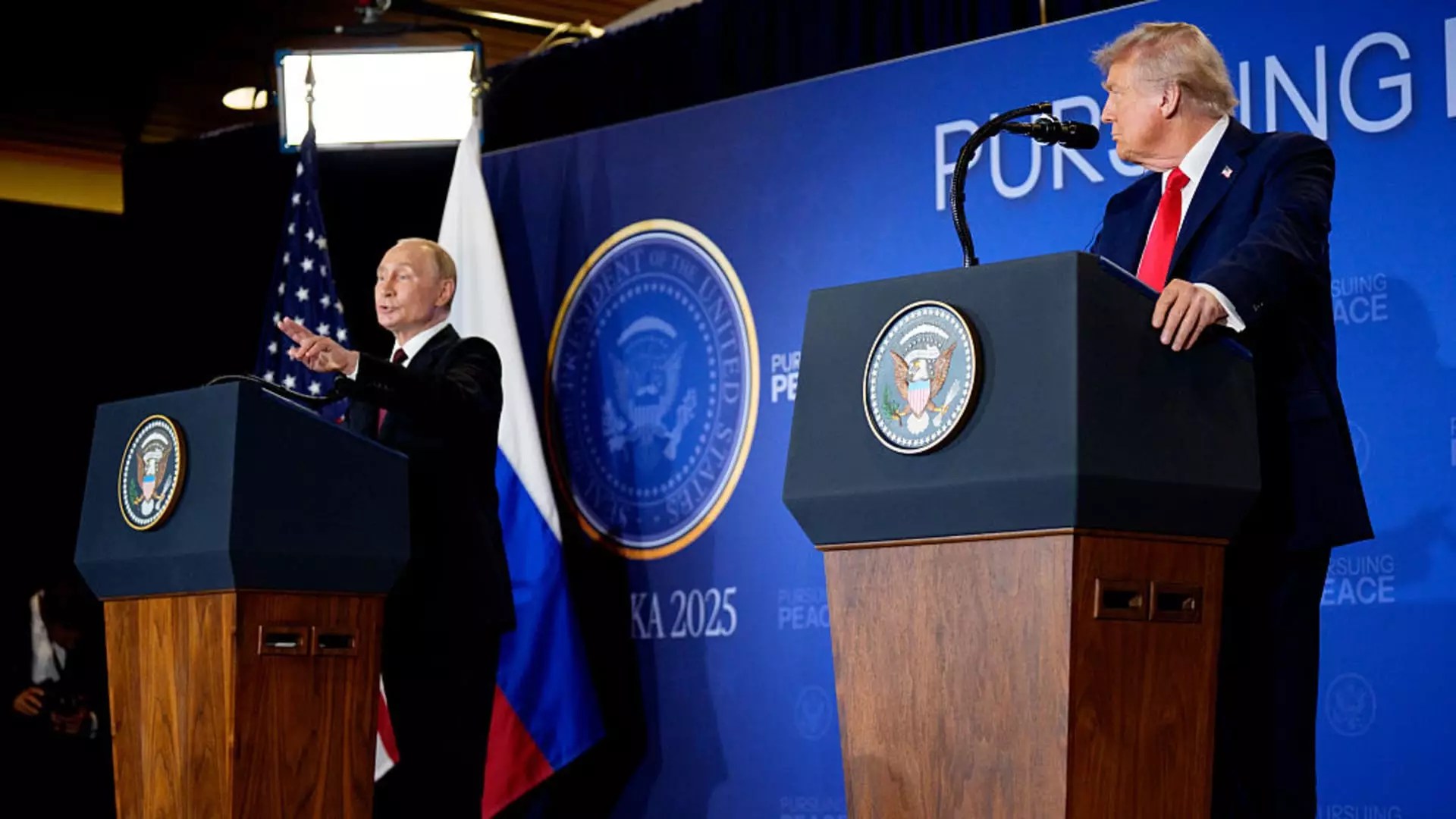The recent summit between U.S. President Donald Trump and Russian President Vladimir Putin was branded as a “productive” engagement, yet the reality beneath this veneer of diplomacy paints a starkly different picture. Despite the touted progress, no tangible breakthroughs emerged, exposing the superficiality of high-stakes negotiations that often become theater rather than substance. The summit’s framing as a “listening exercise” from the White House suggests a lack of real intent to confront core issues. Instead of fostering meaningful dialogue aimed at concrete resolutions, the meeting appeared more like a geopolitical spectacle designed to placate domestic audiences and reassure international observers of ongoing diplomacy, even when critical issues remain unresolved, and perhaps intentionally obfuscated.
The Absence of Ukraine and the Power Dynamics at Play
One glaring aspect of the summit is the conspicuous exclusion of Ukraine from formal discussions. This omits the voices and sovereignty of a nation directly affected by Russia’s aggression. The sidelining of Ukraine underscores a larger tendency in international diplomacy where major powers prioritize their own interests over regional stability and democratic sovereignty. This strategic silence effectively minimizes Ukraine as a stakeholder, implicitly permitting negotiations that could lead to concessions at Ukraine’s expense. It highlights the troubling reality that, despite global calls for justice and sovereignty, diplomacy often degenerates into a game of strategic alliances and power plays that threaten to perpetuate instability.
Rhetorical Commitments Versus Reality
Throughout the summit, both leaders engaged in optimistic rhetoric—Putin spoke of initial “headway,” and Trump claimed “many points” of agreement—yet beneath these words, there is a palpable sense of stagnation. Their refusal to take questions from the press and their reluctance to specify terms reveal a fundamental reluctance to confront difficult realities frankly. Moreover, the absence of any binding agreements or concrete commitments exposes the emptiness of these “talks.” It seems more a ritual of diplomatic posturing than a genuine attempt to resolve the complex issues of conflict, sovereignty, and international security. Both leaders appear content to keep the illusion alive, while the fundamental problems remain unsolved.
Security and Sovereignty: Marginalized Priorities
The summit’s core failure lies in its neglect of the Ukraine conflict, a crisis that has already cost thousands of lives and destabilized the entire region. Trump’s after-the-fact plea to Zelenskyy to “make a deal” ignores the fact that Ukraine’s sovereignty has been compromised, and any negotiations that ignore this reality risk entrenching suffering and territorial loss for Kyiv. The absence of any talk about a ceasefire that includes Ukraine’s legitimate interests suggests that major powers are more interested in managing their Cold War-era tensions and regional influence than in achieving genuine peace and justice. This approach reveals a troubling prioritization of strategic interests over human rights and democratic sovereignty.
The Broader Implications for International Diplomacy
The summit exemplifies a disturbing trend in global diplomacy: the normalization of superficial negotiations that offer little real hope for resolution. As Russian media gleefully touts the summit as a “win” for Moscow, it becomes clear that these talks serve to bolster Putin’s image and agenda, rather than produce meaningful progress. Meanwhile, the Democratic center wing—those advocating for principled, multilateral cooperation—must recognize the peril here. Relying on summits that lack accountability or measurable outcomes fosters disillusionment among allies and strengthens cynical narratives that diplomacy is a façade hiding continued conflict. True diplomacy requires honesty, transparency, and unwavering regard for justice—attributes that appear absent from this charade.
In sum, the summit encapsulates the stark reality that, amidst lofty rhetoric and diplomatic theatrics, the fundamental issues of sovereignty, regional stability, and international law remain unresolved. Power politics continue to dominate, and in doing so, threaten to deepen fissures rather than bridge them. Genuine peace and security will demand more than symbolic gestures; they require confronting uncomfortable truths, holding leaders accountable, and prioritizing humane and democratic principles over strategic convenience.

